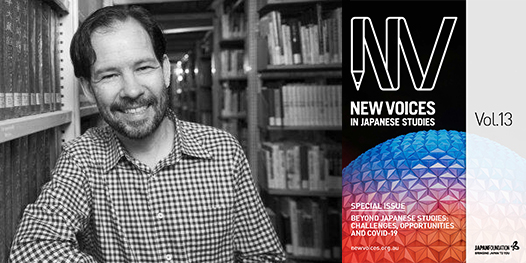
October 12, 2018: Overnight, somewhere in Sweden, the winner of The New Academy Prize for Literature will be announced. What does this have to do with Japanese Studies? Not much anymore.
The New Academy Prize sprung up this year to replace the Nobel Prize for literature, on hiatus for 2018 due to a scandal. The nominees were: Maryse Condé, Neil Gaiman, Kim Thúy and Haruki Murakami.
In recent years, impending Nobel announcements have been accompanied by ripples of speculation that “this year” will be the year that Murakami wins the honour. So fans were understandably disappointed and perplexed when the famously reclusive author withdrew himself from nominations last month.
The bad news is that this year won’t be “the year”. The good news is that the ripples can happily continue unabated, potentially for years to come.
On this eve of the New Academy announcement, we offer some Murakami buzz of our own in the form of three NVJS papers exploring different aspects of his work.
![]() “Rethinking the Rat Trilogy: Detachment, Commitment and Haruki Murakami’s Politics of Subjectivity” by A.K. Byron, for an exploration of political engagement in Murakami’s early works (#nvjs9).
“Rethinking the Rat Trilogy: Detachment, Commitment and Haruki Murakami’s Politics of Subjectivity” by A.K. Byron, for an exploration of political engagement in Murakami’s early works (#nvjs9).
![]() “Heteroglossic Masculinity in Haruki Murakami’s ‘The Wild Sheep Chase'” by Laura Clark, for an analysis of gender performance focusing on male characters (#nvjs9).
“Heteroglossic Masculinity in Haruki Murakami’s ‘The Wild Sheep Chase'” by Laura Clark, for an analysis of gender performance focusing on male characters (#nvjs9).
![]() “Thinking Outside the Chinese Box: David Mitchell and Haruki Murakami’s Subversion of Stereotypes about Japan” by Chikako Nihei, for a look at how Murakami negotiates ideas of Japaneseness (#nv3).
“Thinking Outside the Chinese Box: David Mitchell and Haruki Murakami’s Subversion of Stereotypes about Japan” by Chikako Nihei, for a look at how Murakami negotiates ideas of Japaneseness (#nv3).
Happy reading :)
Pssst… if you’re an emerging researcher with something to say about Murakami (or anything else Japan-related, for that matter), we’d love to hear from you. Check out our Call for Papers page to find out how to submit your work.




